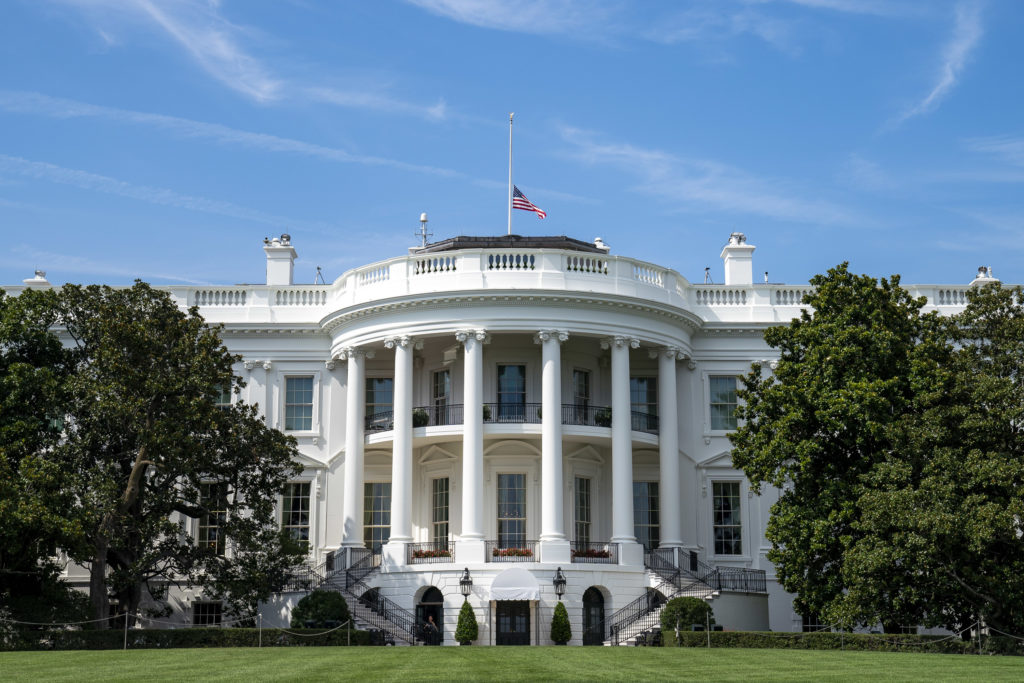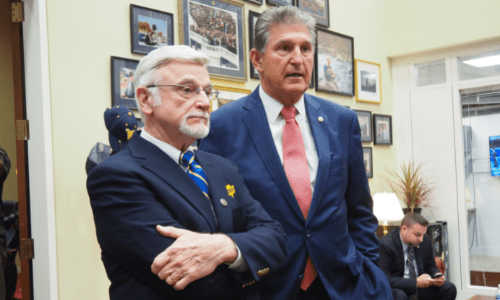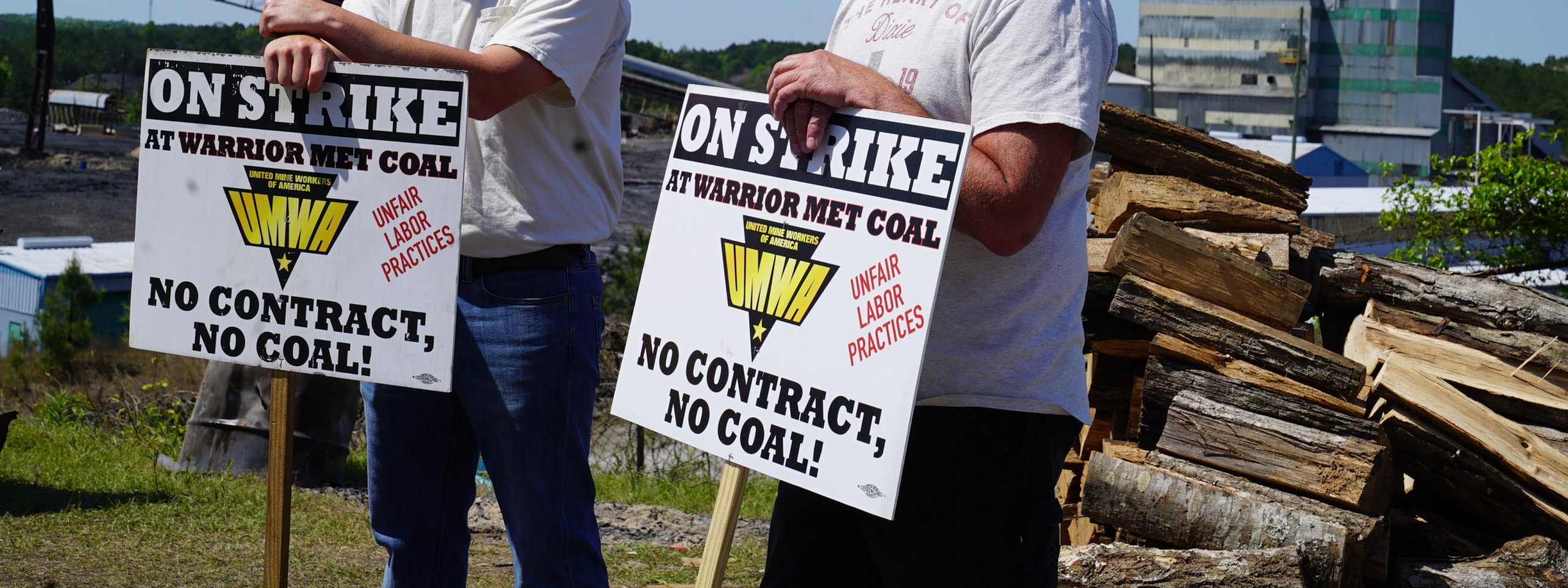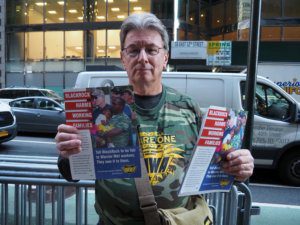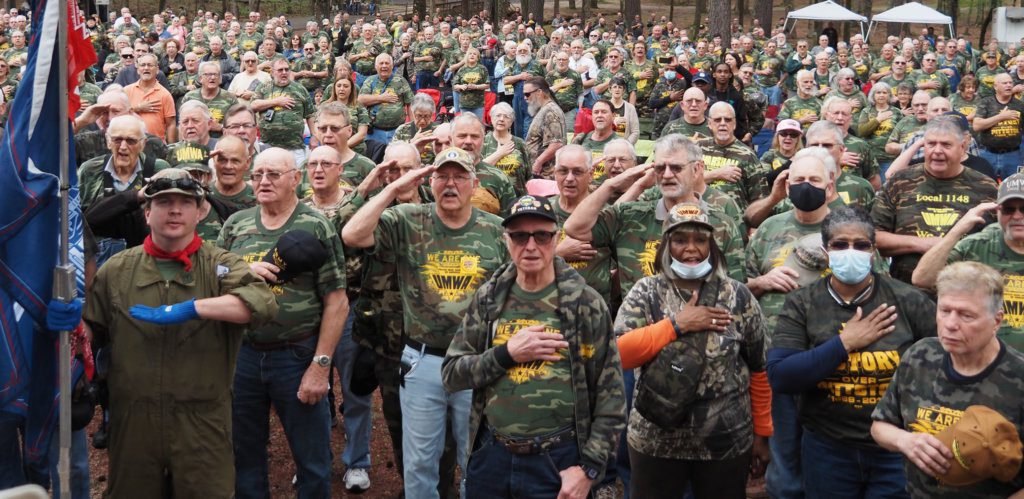SOURCE: AP
DATE: 8/12/2022
AUTHOR:
CHARLESTON, W.Va. (AP) — The sprawling economic package passed by the U.S. Senate this week has a certain West Virginia flavor.
The package, passed with no Republican votes, could be read largely as an effort to help West Virginia look to the future without turning away entirely from its roots.
The bill contains billions in incentives for clean energy — while also offering renewed support for traditional fuel sources such as coal and natural gas — as well as big boosts for national parks and health care for low-income people and coal miners with black lung disease. That’s no accident. Most provisions were included as the price the Democrats had to pay to win the all-important support of Sen. Joe Manchin of West Virginia, who says they will help folks back home.
John Palmer, a 67-year-old retired coal miner from Monongah, says it’s about time.
“We ain’t had too many people care about us,” Palmer said. “We’re always out there fighting for different things. Everybody’s got an agenda, and our agenda was for working-class people. That’s what everybody’s agenda should be, but it’s not.”
Manchin, a conservative Democrat who chairs the Senate Energy and Natural Resources Committee, was a key vote needed to pass the spending package in the 50-50 Senate and send it to the House, where lawmakers are expected to take it up Friday.
The bill invests nearly $375 billion to fight climate change, caps prescription drug costs at $2,000 out-of-pocket for Medicare recipients and helps an estimated 13 million Americans pay for health insurance by extending subsidies provided during the coronavirus pandemic.
If those subsidies are not extended, West Virginia is among the states that will lose the most support for people paying for health insurance, according to the Urban Institute, meaning thousands of people could lose coverage.
Kelly Allen, executive director of the West Virginia Center on Budget and Policy, said the provision in the bill to cap insulin prices at $35 a dose for seniors will make a big impact in the state, which has the greatest number of people living with diabetes per capita in the country.
“There are people who ration insulin, or who have to make decisions between getting groceries and paying for a drug cost, or paying rent and paying for drug costs,” she said.
But Manchin, who has received more campaign contributions this election cycle from natural gas pipeline companies than any other lawmaker, won concessions on the climate front. The bill includes money to encourage alternative energy and to bolster fossil fuels with steps such as subsidies for technology that reduces carbon emissions. It also requires the government to open more federal land and waters to oil drilling.
In a statement, Manchin said he worked with colleagues to craft the “most effective way” to help West Virginia. He declined to be interviewed for this story.
Manchin also has proposed a separate list of legislation to speed up federal permitting and make energy projects harder to block under federal acts. As part of an agreement with Democratic leadership, he specifically asked that federal agencies “take all necessary actions” to streamline completion of the Mountain Valley Pipeline, a project long opposed by environmental activists.
The 303-mile (487-kilometer) pipeline, which is mostly finished, would transport natural gas drilled from the Appalachian Basin through West Virginia and Virginia. Legal battles have delayed completion by nearly four years and doubled the pipeline’s cost, now estimated at $6.6 billion.
Chelsea Barnes, legislative director for Appalachian Voices, an environmental organization that sued to stop the pipeline, said there’s a lot to be excited about in the legislation. But she deemed Manchin’s concessions to the fossil fuel industry “unacceptable.”
“We’d really love to just be celebrating,” Barnes said, “but we know that there’s so much in the bill that is also going to hurt communities.”
Barnes said the bill contains many provisions her organization has wanted for a long time, such as extending and increasing tax credits for clean energy projects, with bonus credits for low-income communities and for communities where a coal mine or power plant has closed.
That means there’s going to be a higher incentive for clean energy developers to set up shop in Appalachia. She said many people she’s worked with on clean energy projects are not excited to see coal jobs disappear but are excited to be part of “the energy economy of the future.”
“They like the idea of retaining that energy-producing heritage, and I think there’s a lot of pride in continuing that role in our society, in our culture,” she said.
Still, she’s concerned about support for carbon sequestration and storage projects in the bill, saying they haven’t been cost-effective compared with clean energy alternatives. She fears that might prolong the life of power plants.
She also said permitting reform in the bill amounts to “permitting destruction” that would damage the environmental review process and silence residents’ voices.
The bill also contains millions of dollars for tourism, long seen in West Virginia as a way to boost the state’s beleaguered economy. West Virginia is home to multiple national parks, including the New River Gorge National Park and Preserve, which opened in 2020.
The National Park System would receive at least $1 billion in the package to hire new employees and carry out projects to conserve and protect wilderness areas.
The bill also permanently extends the excise tax on coal that pays for monthly benefits for coal miners with black lung disease, which is caused by inhaling coal dust.
Since the program’s inception, more retired miners in West Virginia have received black lung benefits than any other state, with 4,423 people receiving benefits last year. But the fund is $6 billion in debt.
For decades, the tax has required annual legislative approval. Twice in recent years, federal lawmakers failed to extend the tax, most recently for this year. That cut the tax by more than half — a windfall to coal companies that put benefits in jeopardy.
The fund is needed more than ever, United Mine Workers of America Chief of Staff Phil Smith said, with miners being diagnosed with black lung at younger ages than before because of higher amounts of silica dust in mines — something that’s not regulated.
Palmer worked underground for 40 years at the Federal No. 2 Mine in Monongalia County, which went bankrupt and shut down shortly after he retired a few years ago. His father, a coal miner, died of a lung disease, and his younger brother also has black lung. He said knowing the money will be there is a “relief” and that miners earn the benefit — an average of just over $700 a month — when they risk doing dangerous work.
“We went down in these holes that kept the lights on for everybody,” he said. “We’re the ones sacrificing our bodies.”

